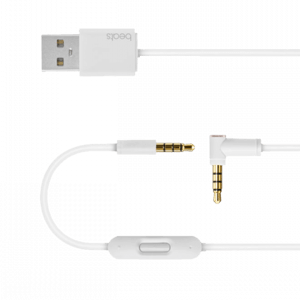Content
This means that you’ll wake up after feeling like you drank or used in a dream. This means you’ll feel more energetic, sleep better, and you won’t be fighting hangovers and other physical symptoms of drinking and drugs. It will take some time for your emotions to balance out and with that, you’ll be feeling a lot of different things. Expect to cry, get mad, mourn your relationship with drugs and alcohol, and at the same time feel relieved and happy.
In reality, these are your drunk buddies and fellow drug users. It is a completely surface relationship which disappears once the party is over. Honestly ask yourself if you could count on your fellow parties for anything? The sober life gives you true authentic friendships with people who legitimately care for you. I know it sounds hard to believe if you lived most of your life in an addicted state of mind, but I promise you it is true.
You’ll Sleep Better
Sobriety refers to the state of being free from any substance use disorder, including alcohol misuse. It means abstaining from drugs and alcohol and living a healthy, fulfilling life. Sobriety is a lifelong journey requiring commitment, dedication, and strong support. It is about quitting drinking or using drugs and changing your lifestyle and mindset to embrace a healthier, happier life. Living a sober life can be a challenging but rewarding journey.
You can also set small, realistic goals that can help you achieve your dreams. Your daily life consisted of finding ways to get high, getting high, coming down off the high, anxiety over getting your next high, and repeat. In terms of calories, binge drinking typically becomes the number one calorie source for addicts. Without this additional, daily calorie source, former addicts are significantly minimizing their calorie load. Instead, calories are now coming from foods that are more natural for the body and easier to process.
Drew Barrymore celebrates turning 49 after overcoming ‘broken’ personal life that left her shocked she’s alive
It’s critical to have a strong support system, whether it’s friends, family, or a recovery group. Surround yourself with people who understand and support your journey towards sobriety. Counseling and therapy can be an effective way to address underlying issues that may contribute to addiction. A counselor or therapist can help you develop coping skills, improve communication, and work through emotional challenges.
While drinking and using, it’s hard for the brain to process and save vital information. During my first months of sobriety, I was overwhelmed with the ripe scents of everyday environments, the beautiful sights of nature, and the loudness of music and social scenes. Places and things that I had seen or heard before became more intense for me. Remember, in the end, they are just dreams and don’t affect your current reality.
Staying Committed to Sobriety
Before you completely cut out alcohol, try taking a moment or two to think about how your relationship with alcohol has changed over the years and where it stands today. “Most people find more power in themselves as they grow confident handling stress, sleep, and social situations without relying on alcohol,” he says. You can remember everything and not feel that sense of terror of waking up and not remembering what you said or did the previous night. You don’t have to try and wrack your brain to remember who you were with or what happened. You’re no longer waking up with that sinking feeling that something terrible might have happened the night before, but you can’t quite remember what. You don’t have to call or text the people you were with and try to piece together the previous night.
- Cravings and withdrawal symptoms can be some of the biggest challenges when living a sober life.
- The idea of sobriety can feel boring or lame, and like it’s only an option for someone who’s hit rock bottom and had to become sober because they had no other choice.
- This article will describe sobriety in more detail, the challenges a person faces while working to stay sober, the options for treatment, and tips for building a sober lifestyle.
Setbacks don’t erase progress, though, and they don’t mean you’ve “failed” to stay sober. Some people who don’t drink alcohol have made a conscious decision to eliminate alcohol from their lives, sometimes through the help of a 12-step program such as Alcoholics Anonymous (AA). Whether it’s to improve your physical health or state of mind, it can be beneficial to explore the role alcohol plays in your life.
This may include taking breaks throughout the workday or seeking outside support if necessary. “Whatever difficult times I’ve gone through professionally, I believed I could rewrite things. Then in my personal life, I was a failure and a broken person. I can’t f believe https://ecosoberhouse.com/ I’m alive sometimes.” You may also want to spend time improving computer skills for work-related projects, like learning PowerPoint. You may think this is the hardest part, but it doesn’t have to be. Getting sober the right way means seeking supervised treatment.
